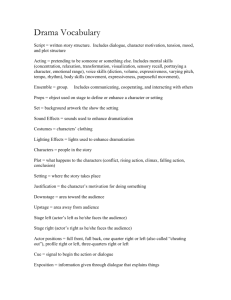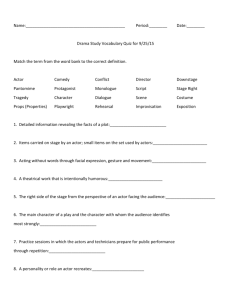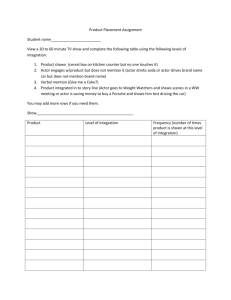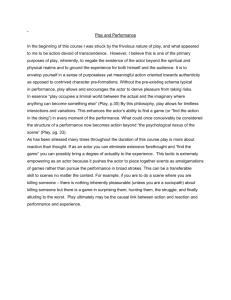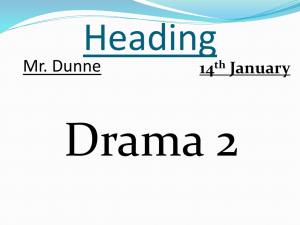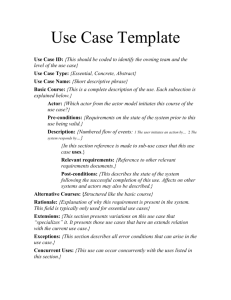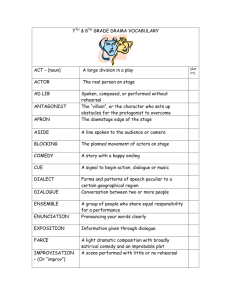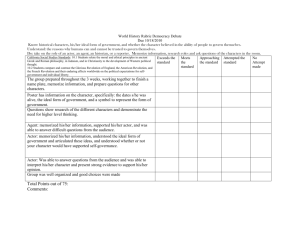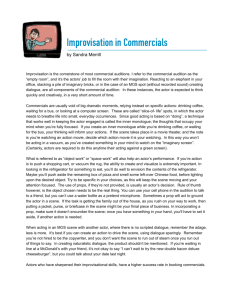ACTING STUDIO FAMU 2006-2007 Lecturer: Dasha Blahova MGR
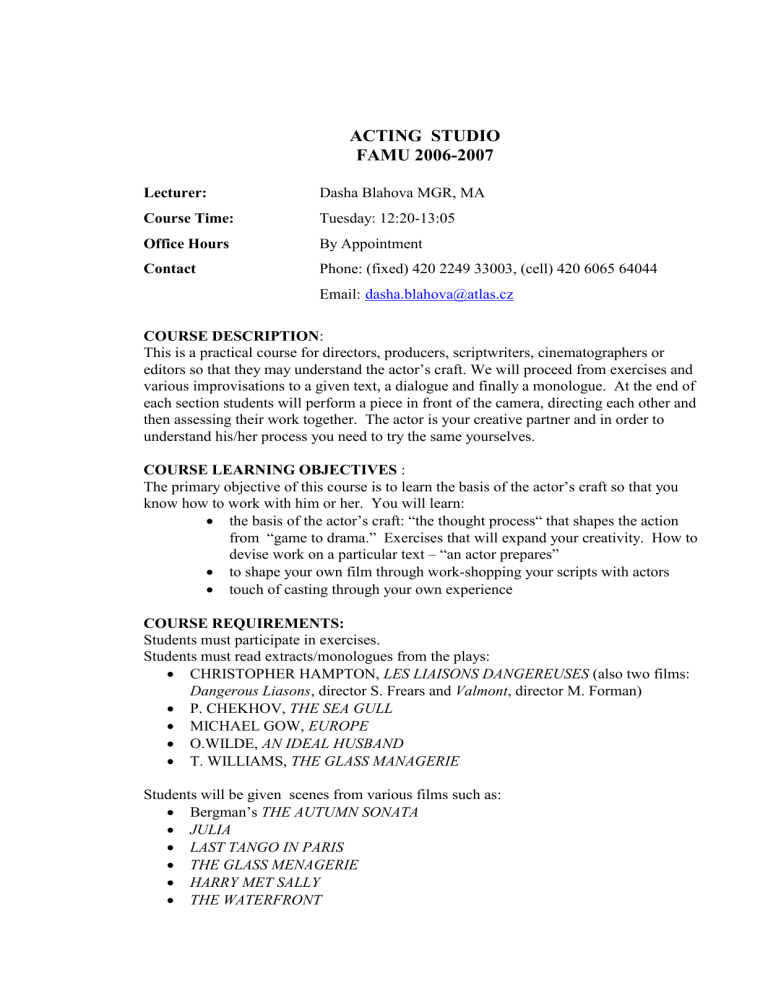
Lecturer:
Course Time:
Office Hours
ACTING STUDIO
FAMU 2006-2007
Dasha Blahova MGR, MA
Tuesday: 12:20-13:05
By Appointment
Contact Phone: (fixed) 420 2249 33003, (cell) 420 6065 64044
Email: dasha.blahova@atlas.cz
COURSE DESCRIPTION :
This is a practical course for directors, producers, scriptwriters, cinematographers or editors so that they may understand the actor’s craft. We will proceed from exercises and various improvisations to a given text, a dialogue and finally a monologue. At the end of each section students will perform a piece in front of the camera, directing each other and then assessing their work together. The actor is your creative partner and in order to understand his/her process you need to try the same yourselves.
COURSE LEARNING OBJECTIVES :
The primary objective of this course is to learn the basis of the actor’s craft so that you know how to work with him or her. You will learn:
the basis of the actor’s craft: “the thought process“ that shapes the action from “game to drama.” Exercises that will expand your creativity. How to devise work on a particular text – “an actor prepares”
to shape your own film through work-shopping your scripts with actors
touch of casting through your own experience
COURSE REQUIREMENTS:
Students must participate in exercises.
Students must read extracts/monologues from the plays:
CHRISTOPHER HAMPTON, LES LIAISONS DANGEREUSES (also two films:
Dangerous Liasons , director S. Frears and Valmont , director M. Forman)
P. CHEKHOV, THE SEA GULL
MICHAEL GOW, EUROPE
O.WILDE, AN IDEAL HUSBAND
T. WILLIAMS, THE GLASS MANAGERIE
Students will be given scenes from various films such as:
Bergman’s
THE AUTUMN SONATA
JULIA
LAST TANGO IN PARIS
THE GLASS MENAGERIE
HARRY MET SALLY
THE WATERFRONT
VALMONT
HAMLET
and other extracts from screenplays according to the individual qualities of students
STUDENTS WILL DIRECT AND FILM EACH OTHER IN SCENES FOR A FINAL
CLASSIFICATION.
Students are encouraged to bring their OWN TEXTS OF INTEREST—screenplays, dramas or their own texts. Part of this workshop is home preparation, including full knowledge of the given text.
CLASS ATTENDANCE AND PARTICIPATION
Class attendance, participation in group learning exercises and preparing texts are basic prerequisites of the course, otherwise, performing the final piece will be like a performance in a theatre premiere without rehearsals. Practice makes perfect.
RECOMMENDED READING :
STANISLAVSKI´S translations:
AN ACTOR´S WORK ON HIMSELF part one and two, 1990-2
AN ACTOR PREPARES -1936
BUILDING A CHARACTER-1950
CREATING A PART“ -1961
JEAN BENEDETTI : STANISLAVSKI AND THE ACTOR -G. B.1998
COURSE SCHEDULE: FALL SEMESTER, 13 SESSIONS
SPRING SEMESTER. 10 SESSIONS
FALL 2006, 13 Sessions
The first part of each acting session consists of a group warm up and improvisations. The warm up concentrates on voice skills and coordination, the improve exercises prepare for work with a partner and lead to the dialogue piece. The work will result in the filming of the piece as a casting session. You will direct each other and then assess each other in groups. Part of each session will be devoted to work-shopping your script assignments according to your individual needs.
1.
An introduction. Theory: creating a character, working with a director.
2.
Warm up followed by an improvisation expanding your thought process.
3.
Warm up followed by an improvisation shaping your work with a partner. Work on a dialogue from the play “Europe,” by Michael Gow. How to devise a dialogue scene.
4.
Warm up. Improvisation continues. Choosing a partner and rehearsing the piece.
5.
Warm up. Improvisation. Directing each other. Next session you need to know the text of the dialogue by heart!
6.
Warm up. Performing the piece. Interchanging the dialogue with different partners. The same role comes up differently by another actor or a different partner.
7.
Warm up. Back to original couples and finishing touches on acting and directing the piece.
8.
Given the stage of art of the scene, we will film the scenes on a digital camera inclass or outdoors. Directing each other and then watching the films in class.
9.
Projects Continued
10.
Projects Continued
11.
Work-shopping and experimenting in writing and directing through improvisation with your colleague-actors using your chosen scenes, script assignments or own basic ideas. Use your cameras for documentation.
12.
Projects Continues
13.
Projects Continued
SPRING 2007
The Spring session will be devoted to a monologue work: how an actor prepares, devises a text and rehearses the part. The emphasis is more on an individual work and students are encouraged to bring their own texts. The final work includes the filming of the monologue, directing each other, and assessing each other in groups. Within FAMU there are screenings of many landmark films; discussions relating to a performance are welcomed e.g. casting, acting, direction etc. This a practical course intended to help you achieve your goals in acting or shaping your film through testing it in class and making decisions from a range of opinions and feedback.
